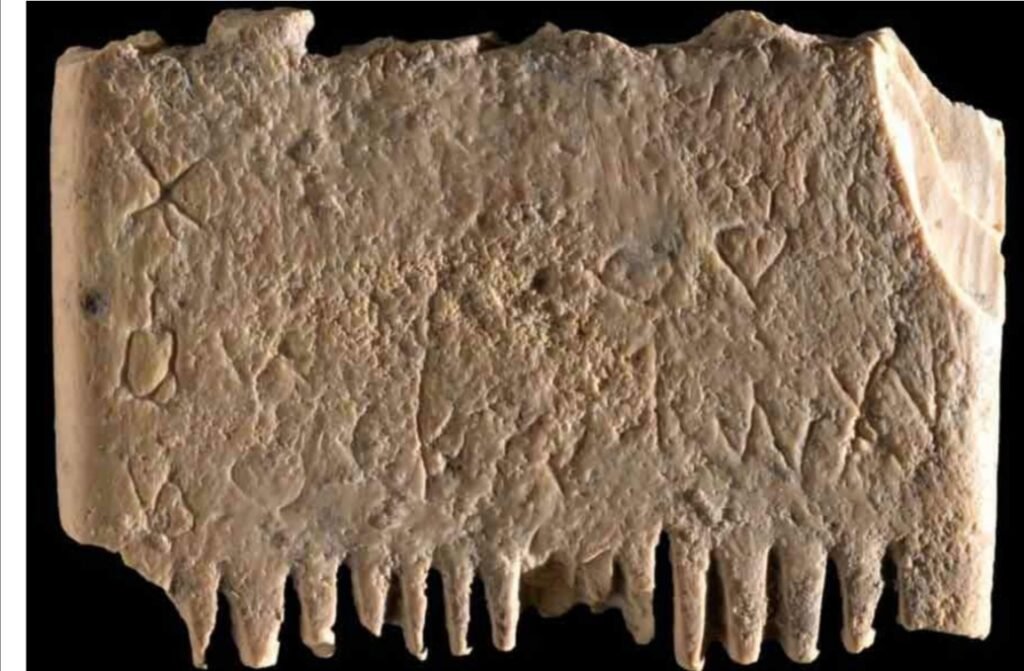According to a report released on Thursday, Israeli archaeologists have discovered a 3,700-year-old comb that contains what is most likely the earliest whole phrase in Canaanite alphabetic script. The message advises readers to comb their hair and beards to get rid of lice. May this tusk dig out the hair and beard lice with its 17 letters, says the sentence.
According to experts, the find sheds new light on some of humanity’s earliest uses of the Canaanite alphabet, which was created around 1800 B.C. and served as the basis for all later alphabetic systems, including Hebrew, Arabic, Greek, Latin, and Cyrillic. The banal subject shows that lice problems were a common occurrence at the time, and archaeologists claim to have even discovered tiny head lice evidence on the comb.
The comb was discovered in 2016, but it wasn’t until late last year that a professor at Israel’s Hebrew University noticed the tiny words engraved on it. Tel Lachish is an archaeological site in southern Israel. The Jerusalem Journal of Archaeology published an article on the discovery on Wednesday.
While several artifacts with the Canaanite writing have been discovered throughout the years, principal researcher Yosef Garfinkel of Hebrew University said to The Associated Press that this is the first entire phrase to have been recovered. According to Garfinkel, earlier studies on the lives of the Canaanites only yielded a few letters, or perhaps a word here and there. He claimed, “We didn’t have enough material.
The discovery also invites discussion of the prehistoric period, Garfinkel continued. Given the reference to the beard and the fact that the line was discovered on an ivory comb in the ancient city’s palace and temple quarter, it is possible that only affluent men had access to written language. It is a really human text, according to Garfinkel. It demonstrates that neither people nor lice changed significantly.
The Canaanites lived in the regions bordering the eastern Mediterranean and spoke a prehistoric Semitic language that is connected to contemporary Hebrew, Arabic, and Aramaic. They are thought to have created the first alphabetic writing system ever discovered.
Further evidence that Canaanites were unique among early civilizations in their use of writing would come from the discovery of a complete sentence. It demonstrates that entire sentences existed even in the earliest phases, said Garfinkel.
He claimed that by comparing the script to the ancient Canaanite alphabet previously discovered in Egypt’s Sinai desert, which dates to between 1900 B.C. and 1700 B.C., experts were able to pinpoint its date as 1700 B.C.
